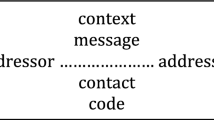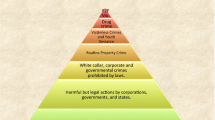Abstract
The great challenge of rhetorical argument is to make discourse ethical without making it less logical. This challenge is of central importance throughout the full range of practical argument, and understanding the relation of the ethical to the logical is one of the principal contributions the humanities, in this case the study of rhetoric, can make to legal scholarship. Aristotle’s Rhetoric shows how arguments can be ethical and can create ethical relations between speaker and hearer.
I intend to apply Aristotle’s analysis to a phenomenon that did not yet exist for him, that of authority, by asking how the acts of asserting and accepting authority can be ethical acts. I take as a test case a peculiarly unfortunate and inept appeal to authority, that offered by the counsel for the District of Columbia in arguing Bolling v Sharp who cited Taney’s opinion in Dred Scott to clinch his point. By seeing just what goes wrong in such a maladroit appeal, I explore the rational, voluntary and ethical dimensions of a decision to accept a given commitment to authority.
I use Joseph Raz’s analysis of authority and the relation of reason to authority, yet think I go beyond Raz by exploring the deliberate and voluntary nature of submission to authority. Choosing to be bound by an authority is an ethical act. As such it is always rational and yet never purely rational. The Supreme Court’s choice of authorities is part of its making itself into an authority, and is a paradigm of the ethical act of choosing to be obligated. Choosing to be committed or obligated is a central paradox of political theory and considerations of authority and obligation, at least since early social contract theorists. However, its importance for judicial reasoning, which at the same time chooses to submit to authority and itself becomes an authority, has not been noted. Consideration of the relations between the ethical and the logical can help us better to articulate the constitution of ethical authority.
Similar content being viewed by others
Author information
Authors and Affiliations
Rights and permissions
About this article
Cite this article
Garver, E. Narrative, Rhetorical Argument, and Ethical Authority. Law and Critique 10, 117–146 (1999). https://doi.org/10.1023/A:1008997301821
Issue Date:
DOI: https://doi.org/10.1023/A:1008997301821




